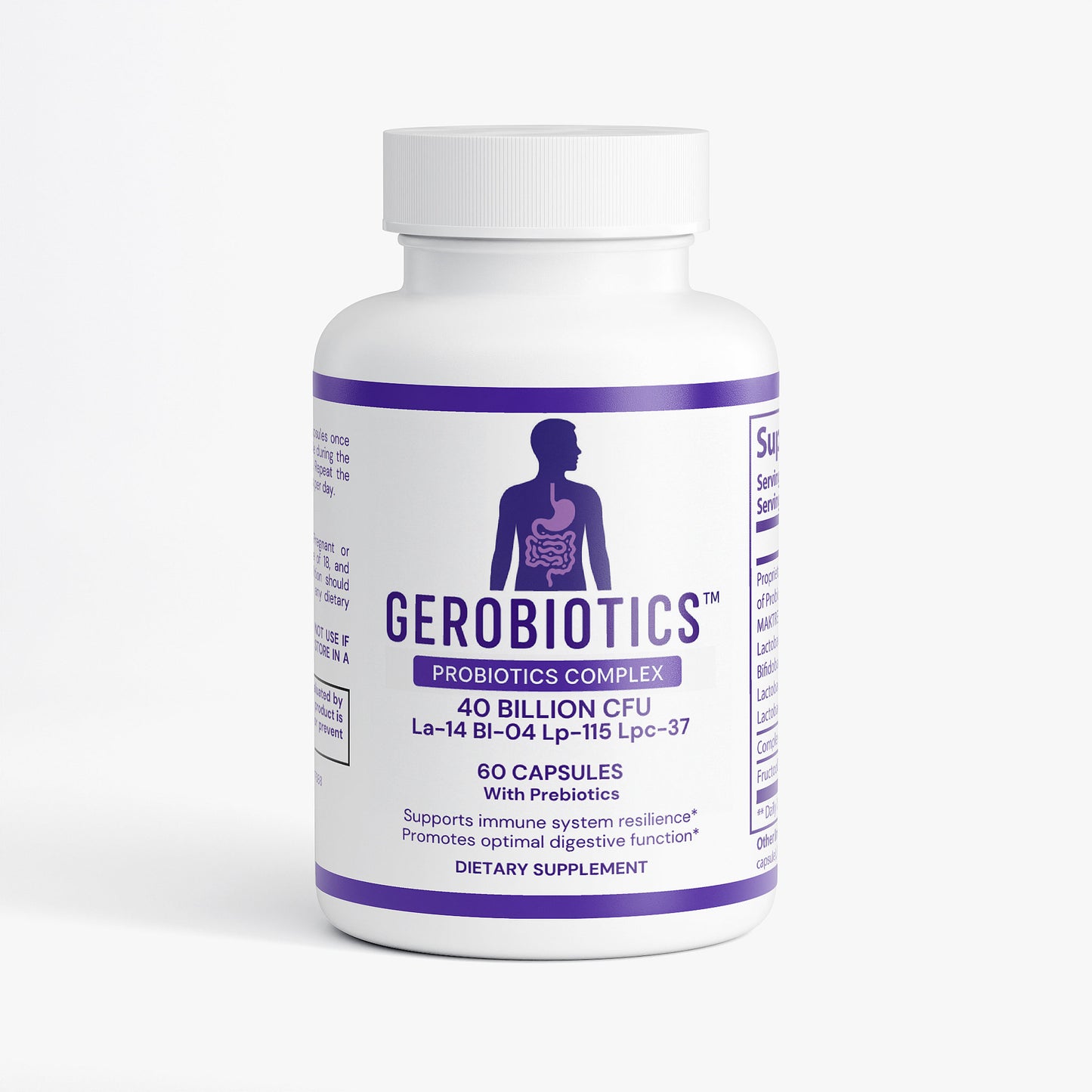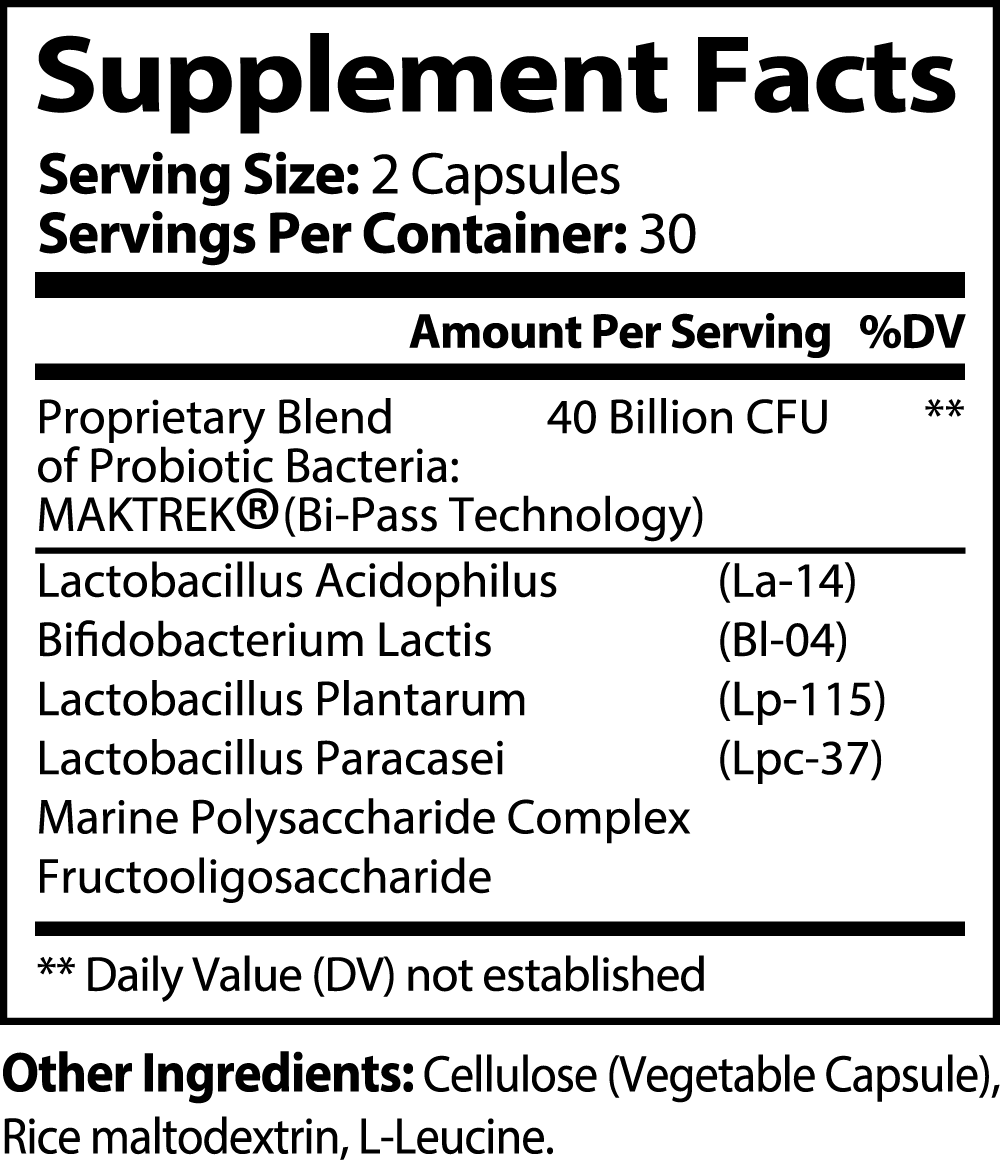If you’ve ever researched gut health, you’ve probably seen the terms probiotics and prebiotics everywhere. But what’s the real difference? And why do experts recommend taking both? Understanding how these two work together could be the key to better digestion, stronger immunity, and even improved mood.
In this guide, we’ll break down the science in plain language, show you the differences between probiotics and prebiotics, and explain why Gerobiotics™ Probiotics Complex with Prebiotics could be a convenient way to combine probiotics and prebiotics in one supplement.
What Are Probiotics?
Probiotics are live microorganisms that, when consumed in adequate amounts, may help support a balanced gut environment.
Common probiotic strains:
-
Lactobacillus acidophilus – Commonly studied for its role in digestive processes.
-
Bifidobacterium lactis – Often researched in relation to maintaining regularity..
-
Lactobacillus plantarum – Studied for its potential role in supporting gut balance.
-
Lactobacillus paracasei – Examined in research for its possible role in digestive support.
Possible benefits of probiotics (based on research):
-
May help support digestive comfort
-
May contribute to maintaining regularity
-
May play a role in nutrient metabolism.
What Are Prebiotics?
Prebiotics are non-digestible fibers that serve as nourishment for beneficial gut bacteria. They can be found in foods like bananas, onions, garlic, chicory root, and asparagus.
Research suggests that prebiotics may help encourage the growth of beneficial bacteria, support digestive balance, and play a role in nutrient metabolism.
Key Differences: Probiotics vs Prebiotics
| Feature | Probiotics | Prebiotics |
|---|---|---|
| Definition | Live beneficial bacteria | Non-digestible fibers feeding good bacteria |
| Source | Fermented foods, supplements | Fiber-rich foods, supplements |
| Role in Gut Health | Add beneficial bacteria | Nourish existing good bacteria |
| Examples | L. acidophilus, B. lactis | Inulin, FOS |
How Probiotics and Prebiotics Work Together
Probiotics and prebiotics are often used together because they complement each other. Probiotics introduce beneficial bacteria, while prebiotics provide nourishment that helps those bacteria grow and thrive. This combination is sometimes called a ‘synbiotic approach’.
How to Get the Right Balance
From foods:
-
Eat fermented foods like yogurt, kefir, sauerkraut, and kimchi.
-
Add fiber-rich foods like garlic, onions, and asparagus to your meals.
From supplements: A supplement that combines probiotics and prebiotics can be a convenient option, especially for those with limited dietary sources.
Choosing the Right Supplement
When selecting a probiotic-prebiotic supplement, look for:
-
Multiple probiotic strains for diverse benefits
-
A prebiotic blend to feed those strains
-
Delivery technology to protect bacteria through the stomach
Gerobiotics™ Probiotics Complex with Prebiotics checks all these boxes:
-
4 clinically studied probiotic strains
-
Fructooligosaccharide (FOS) prebiotic blend
-
MAKTREK® Bi-Pass Technology for better delivery
-
Vegetarian, gluten-free, and allergen-friendly
FAQs
Are prebiotics better than probiotics?
Neither is better, they play different roles. Probiotics are live microorganisms, while prebiotics are fibers that feed beneficial bacteria. Many people choose to include both in their routine.
Can you take probiotics and prebiotics together?
Yes, they are often taken together. When combined, this is sometimes called a ‘synbiotic approach,’ since the two work in a complementary way.
When is the best time to take probiotics and prebiotics?
Probiotics and prebiotics can be taken at different times of day depending on personal preference. Some people prefer taking them with meals as part of their daily routine.
Medical Disclaimer: The information provided in this article is for informational purposes only and is not intended as a substitute for advice from your physician or other healthcare professional. Consult with a healthcare professional before starting any diet, exercise, or supplementation program, or if you have or suspect you might have a health problem.





